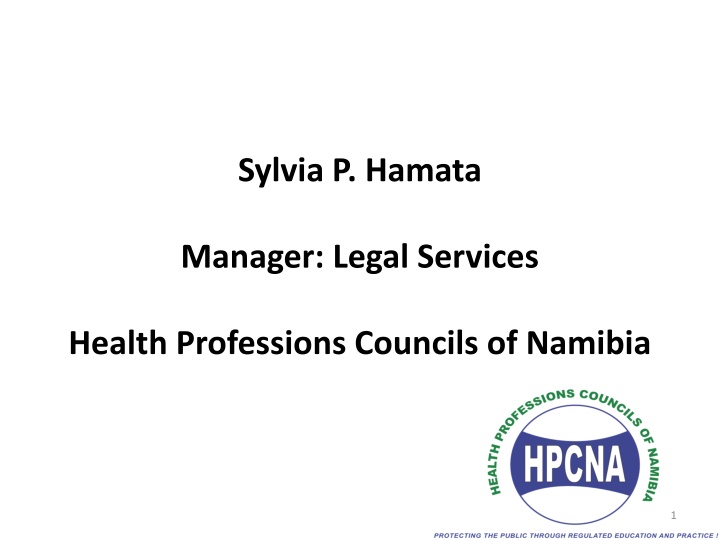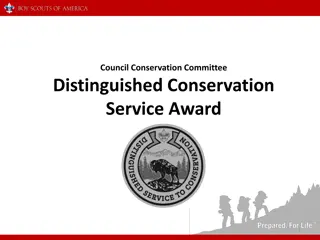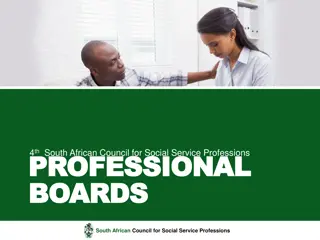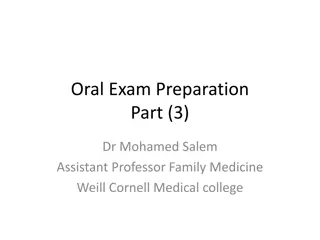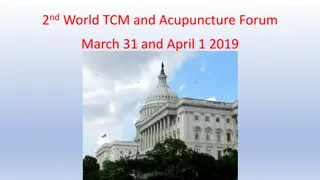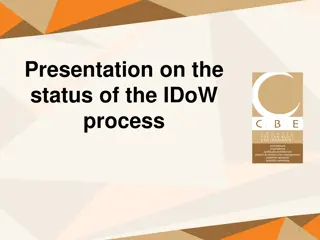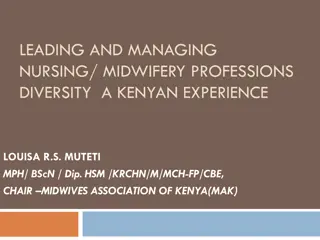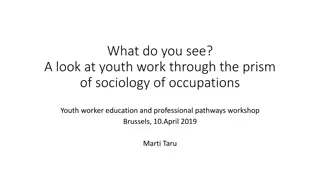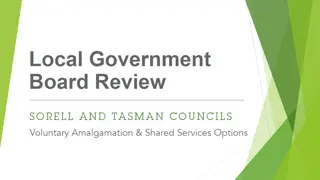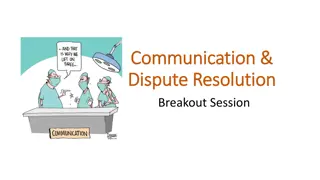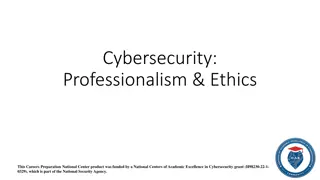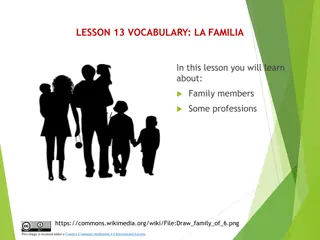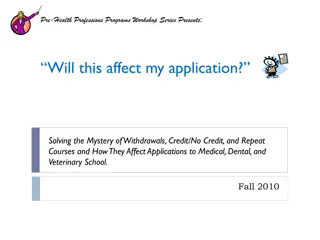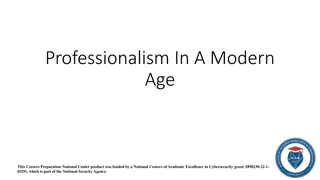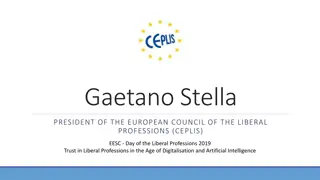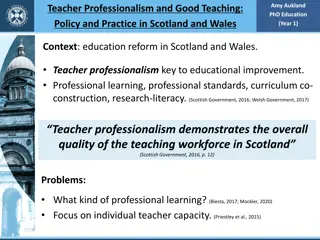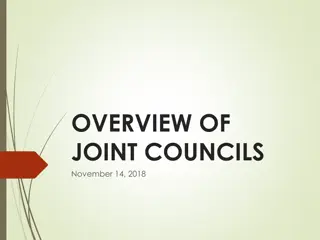Ensuring Professionalism in Health Professions: Councils' Role and Regulations
The Health Professions Councils in Namibia play a crucial role in regulating healthcare practitioners to ensure public safety. They oversee registration, education standards, and investigation of misconduct. Unprofessional conduct is strictly defined and examples range from improper relations with patients to criminal convictions, with a clear process for investigation and consequences in place.
Download Presentation

Please find below an Image/Link to download the presentation.
The content on the website is provided AS IS for your information and personal use only. It may not be sold, licensed, or shared on other websites without obtaining consent from the author.If you encounter any issues during the download, it is possible that the publisher has removed the file from their server.
You are allowed to download the files provided on this website for personal or commercial use, subject to the condition that they are used lawfully. All files are the property of their respective owners.
The content on the website is provided AS IS for your information and personal use only. It may not be sold, licensed, or shared on other websites without obtaining consent from the author.
E N D
Presentation Transcript
Sylvia P. Hamata Manager: Legal Services Health Professions Councils of Namibia 1
INTRODUCTION Health Professions Councils Medical and Dental Council ( Act 10 of 2004) Nursing Council ( Act 8 of 2004) Social Work and Psychology Council ( Act 6 of 2004 Pharmacy Council ( Act 9 of 2004) Allied Health Professions Council ( Act 7 of 2004) 2
MISSION to protect the public through regulated education and practice Mandate of Councils Registration of practitioners Regulation of education offered by health institutions Regular inspection of training facilities Regulation of pharmacy practices Investigation of unprofessional conduct of practitioners 3
1. Regulation of Practice of Practitioners Scope of practice Rules on acts and/or omissions Ethical guidelines 4
2. What is Unprofessional Conduct? Unprofessional conduct is defined by the Acts to mean: Improper or dishonorable or unworthy conduct, or which is improper or disgraceful or dishonorable or unworthy when regards is had to the profession of the registered person, and includes ; 5
Unprofessional Conduct Specifically stipulated in the Act Rules of Omissions and Misconduct Any act / omission fall short of the professional standard 6
Examples of misconduct Improper relations with patients; Improper conduct of practitioners; Procedure without patient s permission or consent; Disclosure of information in regard to patient without his / her permission; Incompetence in regard to treatment of patients; Criminal convictions; Unauthorized advertising; Insufficient care towards patients; Racial discrimination; Rude behaviour towards patients; Prescription to already addicted patients; Perverse incentives and kickbacks 7
3. Process of Investigation of Unprofessional Conduct Complaint received from any person A Council may act mero motu if information of unprofessional conduct comes to hand. Committee involved in investigations Preliminary Investigation Committee Professional Conduct Committee 8
4. Preliminary Investigation Committee Conducts the preliminary investigation. Collect information/document from any person/institution for fact finding. Obtain the necessary expert and legal opinions. Makes recommendations to the relevant Council, depending on the outcome of the investigations. 9
5. Referral of matter to Council The power to make decisions is vested in the Council. Matters are referred to Council by the Preliminary Investigation Committee to consider the recommendation. Council decides, depending on the recommendation, to close the case or refer the matter to a Professional Conduct Committee for a hearing. 10
6. Pro-forma Complainant Appointed by the Council. A legal practitioner. Duties: Drawing up of charges against a practitioner. Prosecute the practitioner on behalf of the Council by presenting evidence against a practitioner charged. 11
7. Professional Conduct Inquiry Hear evidence from pro-forma complainant and practitioner charged/ legal representative. Make a finding based on evidence presented. Present its findings and recommendations to Council for a decision. 12
8. Penalties that may be imposed in terms of the Act A reprimand; Suspension from practicing the profession for a period of time. This suspension may be suspended with conditions. Removal from the register; Payment of a fine not exceeding the prescribed amount. 13
9. Appeal Committee Any person aggrieved by findings or decision of the Council may lodge an appeal with the Committee within 30 days of being notified of the findings of the Council. The committee hears the appeal by considering the records of the proceedings at the professional conduct inquiry The committee is independent in making decisions. Council is usually notified of its findings for information purposes. If the practitioner is not satisfied with the outcome of the appeal then he/she may approach the High Court for relief. 14
10. Information Sharing Information at the investigation stage are treated with confidentiality , unless consent is obtained or necessary for investigation. Inquiries are open to public. Outcome of inquiries are communicated to employers of practitioners, especially the State. There is no link to any institution to which Council is under obligation to report outcome 15
11. Investigation on matters relating to fees The Acts require that a practitioner should inform a patient about the fee to be charged for the service. There should be an agreement/consensus. The mandate of Councils go as far as playing a mediator between a patient and a practitioner in case a dispute arises in respect of fees to be paid for services rendered. Councils have not set fee tariffs. 16
12. Challenges Delays in obtaining information i.e. hospital records. Cooperation of practitioners involved in investigation. Limited funds to conduct inquiries. Lack of expertise or unwillingness of local expert to assist in investigation i.e. provision of expert opinion. Legislative provisions long processes to finalize a matters. 17
13. Linkage with other Institutions Any person may lay a complaint. Sharing of information on issues that may amount to unprofessional conduct. Sharing of actions taken by other institutions in relation to the practice of a practitioner. Although such actions may not automatically translate into unprofessional conduct, can assist in other dealings of a Council with the professional involved. 18
THANK YOU 19
